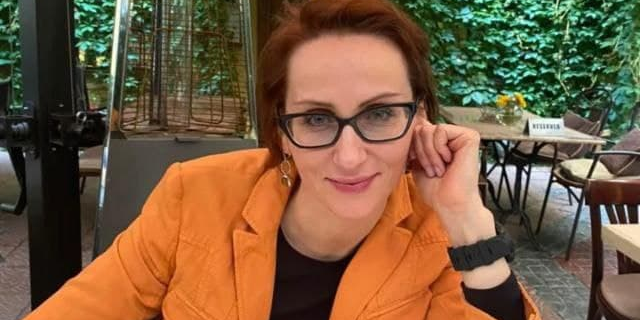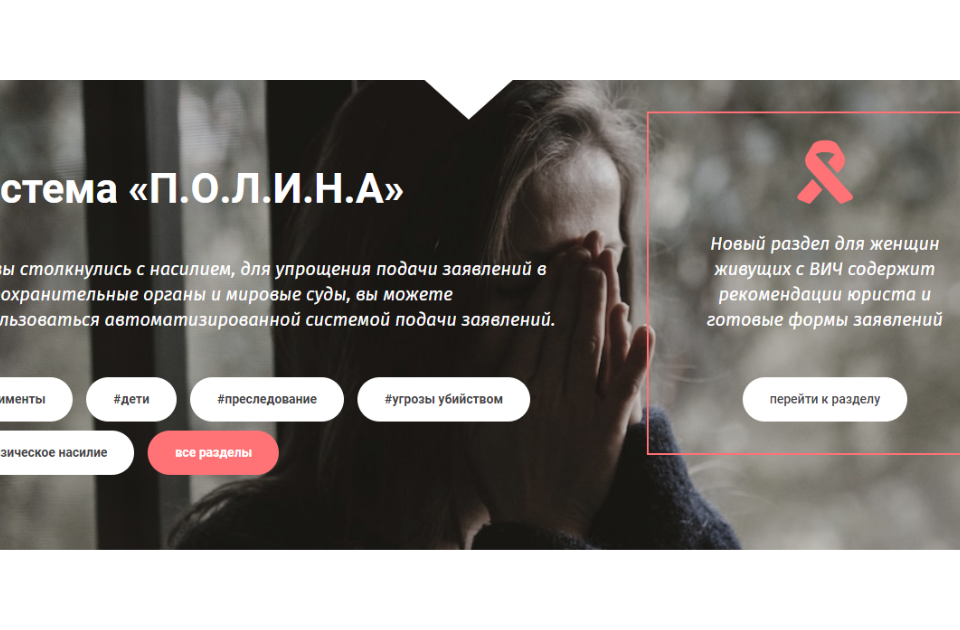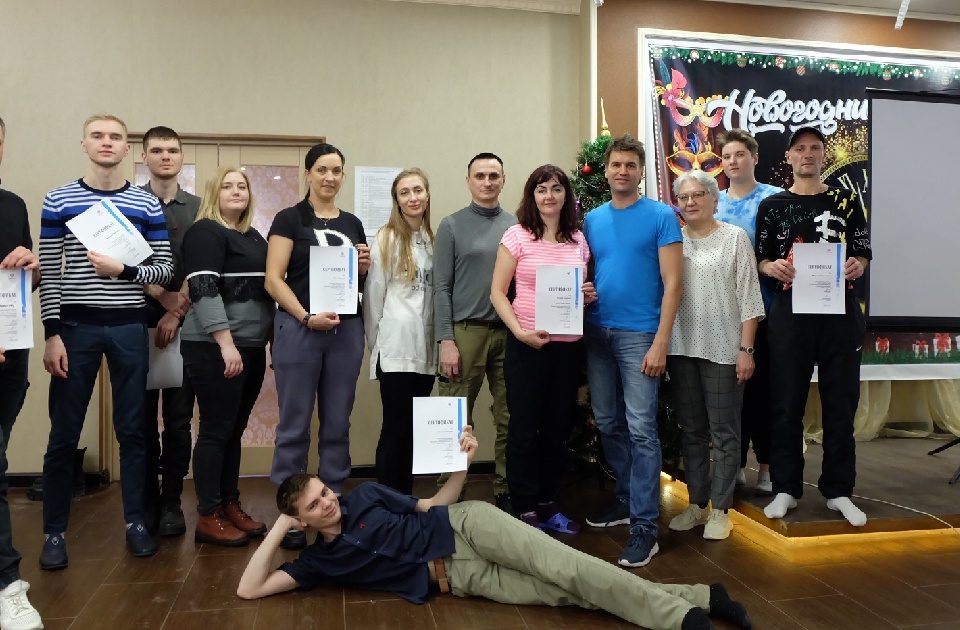
Anna Kryukova is a medical lawyer with the Open Medical Club Foundation in St. Petersburg and co-chair of the CSF Working Group on Public and Inclusive Health. In her interview to Vladimir Shvedov, Anna explains how she combines medical and legal practice to help defend the rights of both patients and healthcare workers.
As a lawyer, you defend patients’ rights in a wide range of contexts, but your original specialization is HIV, right? Could you discuss some of the challenges, including specific forms of discrimination that HIV-positive people have faced during the pandemic?
To begin with, the coronavirus pandemic highlighted the reality of discrimination for everyone to see. This time, discrimination affected people with actual or suspected coronavirus. Many COVID-19 patients had to experience first-hand how stigma and discrimination work.
In this context, HIV has somewhat faded into the background. Based on what I hear from my contacts in both NGOs and government agencies, the significance of HIV as a dangerous infection has faded a bit.
At the onset of the pandemic, little information was available about COVID-19, and the assumption was that people living with HIV could be particularly vulnerable to coronavirus due to impaired immunity. This, however, only reveals that many healthcare workers, let alone lay public, still need to understand that HIV is different from AIDS and one can live with HIV without having any problems with immunity.
Also, in my opinion, denial of treatment and other forms of discrimination against people with HIV have not changed much compared to the “pre-COVID” era, but people with HIV encountered other problems instead.
Like what?
Those related to the lockdown. Patients with HIV need to show up at the AIDS centre once every three months to receive their take-home supply of medicines, but it was a challenge under a total lockdown. We instructed people with HIV on what they should say if stopped on their way to the AIDS centre and reminded them to always carry a document stating that they need the medicines.
But we did not see treatment interruptions or other major problems. Some NGOs were delivering the medicines to some patients – at least in St. Petersburg where I am based. Doctors at AIDS centres are aware of their patients’ needs and willing to make life easier for them, so they normally agree to dispense the medicines without an additional check-up.
The fact that HIV and COVID-19 are on the same list of socially dangerous infections was in the centre of our advocacy: we argued that the new pandemic is not a reason to forget about the HIV problem; therefore, most HIV patients were receiving the treatment they needed.
In a sense, the COVID-19 pandemic caused doctors to streamline their practice to make things easier for themselves and their patients.
Have there been any particular patient groups affected more than others?
There have been challenges with migrants unable travel back to their home countries during the lockdown to be seen by a doctor and receive their pills. Instead, they had to pay for their HIV care in Russia. To complicate things further, the HIV medicines were not available for purchase in some regions, and foreign nationals were unable to access the life-saving treatment even if they could afford it.
Access to HIV treatment is problematic for foreigners in Russia in other ways as well: it is free only for nationals of Belarus, refugees and persons granted temporary asylum. Unfortunately, take-home medicines are not dispensed to Belarus nationals, while refugees and patients granted temporary asylum can only access treatment while their status is valid.
Let’s talk about vaccination. The topic is broad, but could you highlight some of the key issues?
Early on, there were controversies over indications and contraindications to vaccination. Just as elsewhere in the world, the vaccination campaign in Russia started before the end of the third clinical trial phase.
Have the perceptions changed? Yes. At first, HIV-positive patients were referred to vaccination with great caution. You may also remember that HIV drugs were believed to be effective against COVID-19, so many patients on antiretrovirals felt safer because of it. But then it became clear that people with HIV can and should get vaccinated just like everyone else.
More generally, vaccination requires a cautious approach and a good understanding of indications and contraindications for different categories of patients.
What are the attitudes to vaccination among people living with HIV?
In fact, many patients ask for an exemption based on contraindications to vaccination. Those who understand why vaccination is important have already received the vaccine. But many others prefer to believe in contraindications. There are a lot of HIV dissidents in Russia, and their attitudes are essentially similar to those of covid dissidents.
To make it clear, whether a doctor issues a medical exemption from vaccination or refuses to issue one – neither is discrimination. Doctors are bound by law. When COVID-19 vaccines first became available, nobody had full knowledge of potential contraindication. If a patient developed serious side effects, the doctor could be held liable – and no one wants to face a malpractice suit. Once official guidance on contraindications was issued, this problem was resolved, making things easier for doctors.
In healthcare, the best way to normalise a process is to adopt relevant regulations at the regional or local level.
Many hospitals during the pandemic were converted to care for covid patients, and there were concerns that other diseases could be neglected as a result. Have you observed cases where patients were systemically denied scheduled treatments?
In the early 2021, scheduled interventions were reduced to a minimum. The problem was that while patients waited for scheduled treatments, their chronic conditions were getting worse and required emergency care at some point. The right to access healthcare in a timely manner was affected as patients were forced to wait much longer for hospitalisation.
Cancer patients faced particular challenges, forced to queue physically for hours just to make an appointment with their oncologist. People really suffered. While we cannot describe this situation as discrimination, I still believe that some measures were unnecessarily tough.
Patients’ relatives also faced a challenging time. While they naturally wanted to learn about the situation of their loved one, especially if he or she was hospitalised with covid, they found it extremely difficult to find out anything from doctors who referred to medical confidentiality. Many relatives were desperate for any information, but getting the doctor to talk to them was extremely difficult, because phones at hospitals were busy most of the time and visiting the healthcare facility was not an option due to the quarantine.
But what could be done in such a situation?
First, unless the patient expressly requests otherwise, relatives can find out the details of their loved one’s condition by making an appointment with the chief medical officer of the hospital.
Many hospitals made arrangements for obtaining patients’ formal consent to giving out information to family.
However, some patients preferred their family not to know the details and refused to give consent. I observed such a case first-hand: a woman tried to find out more about her father’s condition; the hospital asked for his consent, but the man did not allow disclosing this information to his daughter.
A lot depends on the healthcare provider and on how friendly it is to patients and their families.
What are some other patients’ rights which often got violated during the pandemic?
There was a problem with access to abortions. Since abortion is a scheduled medical intervention, and scheduled interventions were suspended in many regions during the pandemic, some women missed the legal deadline for medical abortion. Unfortunately, such situations were not always resolved in favour of the women.
A separate vulnerable group were the elderly. I find it unfair that the authorities suspended pensioners’ social cards [making public transport free for the elderly] to keep older people inside their homes: what if they needed to take a bus to the polyclinic? This restriction negatively affected these patients’ rights.
What about the other side? Have there been problems with discrimination against healthcare workers?
Yes, in particular those related to living with HIV. The current policy is that healthcare workers living with HIV cannot perform invasive procedures such as injections or surgeries. This is not explicitly stated in the law; however, the sanitary legislation says that a healthcare worker must be suspended from work if they can pose a danger of spreading infection.
This means that HIV-positive doctors cannot perform surgeries and invasive manipulations, because technically, they could be a source of infection. This is effectively not true, because a person on ART cannot transmit HIV. I know first-hand of a few tragic cases where really good doctors contracted HIV, sometimes through a medical accident. This was the end of their medical career.
It’s a shame when an excellent surgeon who could still save lives is deemed “unfit” for practice. This must be changed. We need to treat doctors with care and kindness, while making reasonable requirements to their qualifications and performance.
HIV-related discrimination is an enormous challenge for healthcare workers who are often afraid to stand up for their rights and choose to avoid publicity to keep their jobs. They agree to litigate as a last resort when they have nothing left to lose.
Are there enough healthcare workers willing to care for covid patients?
Indeed, many choose to care for covid patients to access additional covid payments. This reveals a catastrophic situation: while the additional payments are not very high, they allow medics to make ends meet. I believe that Russian doctors should be paid at least twice as much as they are now.
We do not seem to value the medical profession in terms of remuneration. Our doctors today are in a position where they are not only paid meager salaries but also worry about losing their jobs. This affects both their performance and professional commitment. Many are forced to work two or three jobs and have trouble focusing due to sleep deprivation. I have no idea why the authorities are not taking steps to address this issue.
Let’s go back to where we started: discrimination against patients. You said that covid patients faced discrimination in the early days of the pandemic. What kind of discrimination?
We need to revisit the concept of “discrimination.” Discrimination is a situation where someone having power and authority denies you access to care.
Prejudice from ordinary people is called stigma, not discrimination, although discrimination is based on stigma. Stigmatising attitudes are manifested as verbal insults, physical violence and hostility. There is also self-stigma.
At the onset of pandemic, covid suddenly became “the plague of the century” – just as HIV before it. People were afraid to speak openly about having covid, fearing for their freedom. In fact, any measures to restrict the rights of patients with infectious diseases cause people to hide the diagnosis. This is similar to the problem faced by migrants with HIV who fear deportation if diagnosed and hide their HIV status, with negative implications for the epidemiological situation in the community.
Being diagnosed with coronavirus means that a person’s entire life will change, at least temporarily, and their plans will be ruined due to quarantine. Those wishing to avoid this will hide the disease.
Are people generally careless about the risk of infection?
Today the authorities are taking fairly tough measures to force people to vaccinate, although technically there should be an option for those who do not want to vaccinate – just stay home.
But back when people were urged to wear masks, they neglected it, and now tougher measures need to be taken instead. I can understand that many will find them inconvenient, but I am not in a position to criticise these measures, because if everyone had been wearing masks early on, there would be a chance for a better epidemiological situation now.
But again, I am generally in favour of choice and against excessively tough measures.
Many people do not want to be vaccinated with the vaccines available in Russia.
Right, it’s a shame that patients have essentially no choice in terms of vaccines. It would be much better to give people an option of getting a vaccine produced in another country, even if they have to pay for it.
On the one hand, the state makes vaccination mandatory, but on the other hand, it does not provide a wider choice of vaccines.
Can we say that restrictions imposed on non-vaccinated people violate their rights?
As a human rights defender, a lawyer, and a person, I certainly do not like compulsory measures.
But unfortunately, trusting our citizens to show sufficient solidarity and discipline did not work. As a trained physician, I understand the importance of vaccination. The number of hospital slots is limited, and an explosive increase in covid incidence could lead to a severe shortage of beds for those who need hospitalisation. With proper vaccination, people tend to have the disease in a milder form.
Unfortunately, some of our vaccine communication is misleading. For example, campaign videos transmit the wrong idea that once vaccinated, you can invite all your relatives over to your home. But a vaccinated person can still infect someone else who does not have the immunity and can become seriously ill or even die. COVID-19 is a very unpredictable virus. Therefore, even a vaccinated person must wear a mask. Public confidence in the healthcare system is also essential. I believe that “vaccine nihilism” has a lot to do with low public awareness and a lack of confidence in the system.
The state has the power to take measures even if we don’t like them. The Russian Constitution, even before it was amended, said that individual rights could only be limited by a federal law.
With QR codes, the authorities seem to use a different approach. I can understand measures which compel people to vaccinate. But why cannot someone just carry a paper-based, rather than digital, proof of vaccination? I cannot understand why this should be a concern for an elderly person already having a certificate of vaccination. Even after vaccination, this person faces restrictions just because they cannot or would not obtain a QR code. I find it wrong that there are no alternatives available.
Do you think foreign vaccines will be available in Russia in the near future?
Knowing the ambitions of Russian vaccine manufacturers, I expect foreign vaccines to be available here only if Sputnik is approved in other countries. I also find it strange that they are not trying to promote CoviVac abroad. This whole issue is overly politicised.
I have heard from Western colleagues that Sputnik is a good vaccine, and have no doubt about it myself. We can only speculate why it is not yet registered [outside Russia]. We do not know how its clinical trials were arranged in terms of compliance with the WHO requirements and what exactly hinders its registration now.
In fact, I have not seen much effort to get our vaccine recognised, and we seem to be just waiting and doing nothing about it. I believe that once the Russian vaccine is approved, we will have foreign vaccines available here. Another question is whether foreign vaccine manufacturers would be attracted to our market.
What can you say about other Russian vaccines?
As I said, I am sure that Sputnik really works. I would rather not say anything about EpiVacCorona. I am vaccinated with CoviVac and believe that it is a very good vaccine. It is manufactured in the old traditional way and deserves attention. We have all been vaccinated with this type of vaccines before.
In any case, as a medical doctor, I believe that any vaccination should be preceded by a very careful assessment of the patient. Even though in most cases there will be no contraindications, adverse exceptions are also possible.
My first litigation involved vaccine-related complications in a child vaccinated with a live TB vaccine. The child developed a pathology after they were vaccinated without a proper health assessment that should have prompted the healthcare provider to reduce the vaccine dose. After being vaccinated with a full dose, the child suffered a calcaneal lesion, a serious condition affecting the quality of life in many ways.
While this particular case is not about an antiviral vaccine, it illustrates why vaccination must be approached with care and caution.
Anna, you mentioned being a trained medical doctor. How did you come to practice law?
After the Pediatric Medical Academy, I completed internship and residency in ENT. It was in the early 2000s when making a living by medical practice was hard in Russia: I worked in three jobs and made a maximum of $100 a month. I wanted better living standards for myself and my family and decided to change professions – like many other doctors at the time – and took a position with the Open Medical Club Foundation.
Gradually, I moved away from medical practice to being a project coordinator with the Foundation. I examined my options and chose to go for a law degree. This has led me to become a rights defender in healthcare, serving both patients and healthcare workers.
Does your experience in healthcare benefit your legal practice?
I only practice as a lawyer today, and I am no longer a project coordinator. I still keep my legal practice within the healthcare sector, because my training allows me to see things from various perspectives. Thanks to my training, including postgraduate studies at Sechenov University, I am well aware of how the public health system works, allowing me to think strategically as a lawyer and human rights defender.
I use my expertise to give advice to healthcare providers in a way that educates them about patients’ rights, and I do my best to be constructive rather than confrontational. I work to raise awareness among healthcare workers that by respecting their patients’ rights they can improve the quality of care, face fewer complaints and inspections, and build public confidence in the healthcare system. I am convinced that this is the best approach for lawyers defending patients’ rights.
Similar Posts:
- Elena Shakhova: “There have been attempts to humanise the foreign agents law, but they have led to nothing good”
- Tatiana Glushkova: ‘The choice is yours: either to live under constant threat or to post nothing but cute kittens in social media’
- Galina Arapova: “People have little to no understanding of what independent journalism is and how it should function in a normal society”


